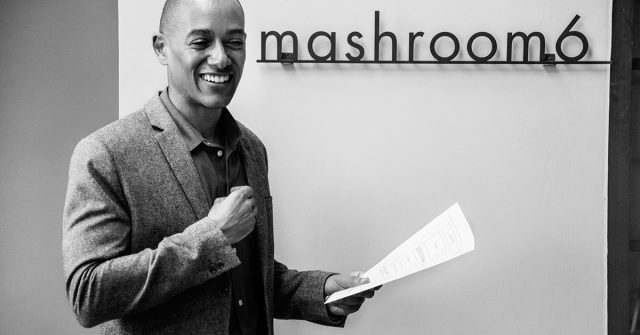Have you ever said something and regretted it later? Well, I believe I know the answer because it has happened to all of us. However, this is not the case with intelligent people. They know exactly what phrases should never be a part of their vocabulary.
Words have power and can’t be retrieved once they’re spoken. They also affect the way others see you and the image you’re creating of yourself in society. That’s why intelligent people carefully choose the words and phrases that best portray their message.
The thing is, there are some phrases you wouldn’t want to say around certain people, be that at work, at home, or in any other social setting. No matter how educated and talented you are, these phrases can change the way people see you in an instant and paint you as incompetent and unconfident. They can be real career killers.
Since many of us are not that skilled in this area, I’ve compiled a list of 12 phrases that intelligent people would never say. The list can also help you strengthen your communication skills at work and elsewhere.
Here they are:
1. “I’m a smart person.”
You’d never hear a truly intelligent person say something like this because they never brag about how smart and competent they are. On the other hand, people who constantly boast about how high IQ levels they have actually lack self-confidence, feel incompetent, and look for other people’s validation.
2. “It is what it is.”
This is the same as saying “I don’t know what else I could add to this situation,” or “I don’t know how to fix this.”
A truly intelligent person would never say this because they’re always willing to take on new challenges and they never accept something for what it is. They rely on their problem-solving skills and innovative thinking so as to deal with problems directly.

Whose fault is it then? Intelligent people never point fingers at someone else and play the blame game. No matter how small their role in a failed deal is, they hold themselves accountable, instead of shifting the blame onto someone else.
4. “This is the way I’ve always…”
Saying such a thing to your boss, employees, or co-workers will definitely not bring you any good. In this fast-changing society where even a six-month process can seem outdated, this will make you sound lazy, resistant to change, and unwilling to learn something new.
The fact that you’re used to a particular way of doing things doesn’t mean that’s the only or the best way to get the thing done. There’s almost always a better way.
5. “No one else is doing that, so why should I?”
A truly intelligent person never backs down from a challenge, unless it’s the kind of challenge which is unworthy of their attention and efforts. If there’s a task that no one wants to do, the smart person will always be there to raise their hand and accept the challenge.
Intelligent people use challenges as a means by which they develop new skills and learn something new.
6. “That’s not fair.”
Life is not fair – we all know that. But, saying this gives the impression that you think life is supposed to be fair, which in turn makes you look pretty immature and naïve.
Instead of whining when things don’t go like you planned, such as when your project idea doesn’t get approved at work or when you don’t get the promotion you worked so hard for, you should find out what exactly went wrong so as to make the necessary adjustments and prevent future misunderstandings and mistakes.
7. “That’s not a part of my job description.”
There’s no employer who would like to hear that their employee is only willing to do the things they signed up for. Saying this makes you sound like you’re only interested in receiving your paycheck while investing the minimum effort in your job.
So, if your boss asks you to complete a task you think you’re not competent for, don’t ruin your chance to make an impression on them by saying this sarcastic remark. Instead, try to do the task eagerly and then discuss with them in a civilized, kind manner your work responsibilities.
I wrote “I could care less” and not “I couldn’t care less” because smart people, especially those who have high levels of emotional intelligence, do care.
A person uses this phrase to express indifference or apathy. But, this is something that intelligent people are not familiar with. They’re empathetic people who understand and care about the emotions and sensitivity of others. They enjoy solving problems and talking to other people so as to get to know them better.
9. “You look …”
Intelligent people know that commenting on someone’s age, physical appearance, or weight is inappropriate and even rude. They’d never say a thing like: “Jeez, you’ve gained a lot of weight. You weren’t this fat the last time I saw you.” Or “Why don’t you put some foundation on the wrinkles on your forehead? You’ll look younger that way.”
So, if someone looks tired or unkempt, don’t point that out. Instead, ask them if everything is okay and if they need any help.
10. “I’m willing to pay …”
A smart person would never allow themselves to make such a stupid mistake. Imagine how absurd it would be if you say to a freelancer: “I’m ready to pay $50 per hour and the freelancer charges $40 per hour. So, who would win the negotiation? Of course, this was a rhetoric question.
Smart people keep quiet until they feel it’s the right moment to speak up.
11. “This has to be perfect.”
There’s no such thing as perfect people or perfect product/service, or perfect results and intelligent people are well aware of this.
They work hard, do their best, and move on. Saying this phrase will only hold them back from moving forward.
12. “I will try.”
This phrase makes you sound like you lack confidence in your ability to do a task. Moreover, by saying this, you give yourself the permission to fail. Regardless of the results, you can always claim that you “tried.”
A person who really achieves their goals never say “I will try.” Instead, they say: “I’ll do it,” and they devote all their attention and energy to it.
So, if you’re asked to do something, either commit to doing it or offer an alternative, but never say “I’ll try.”


